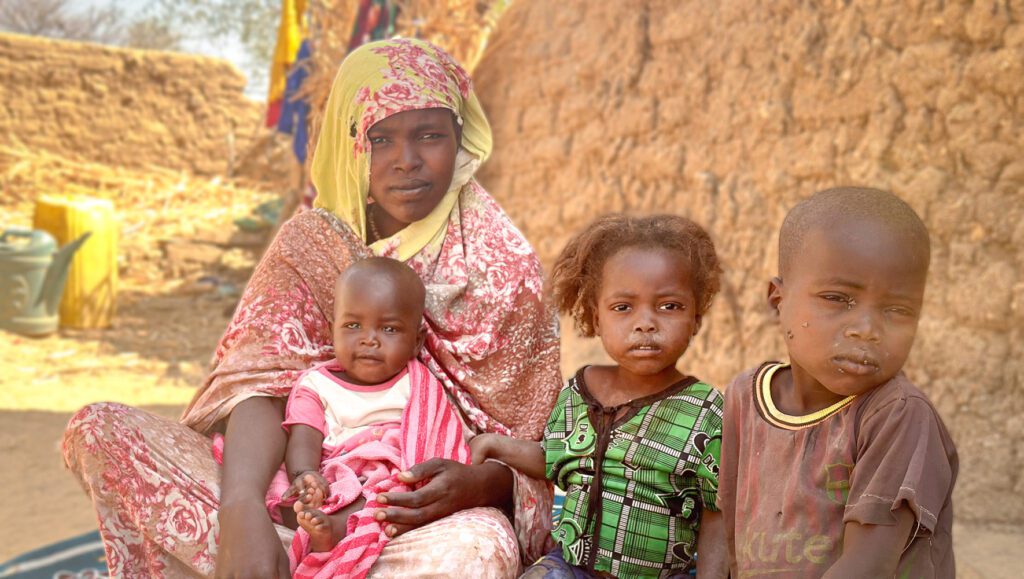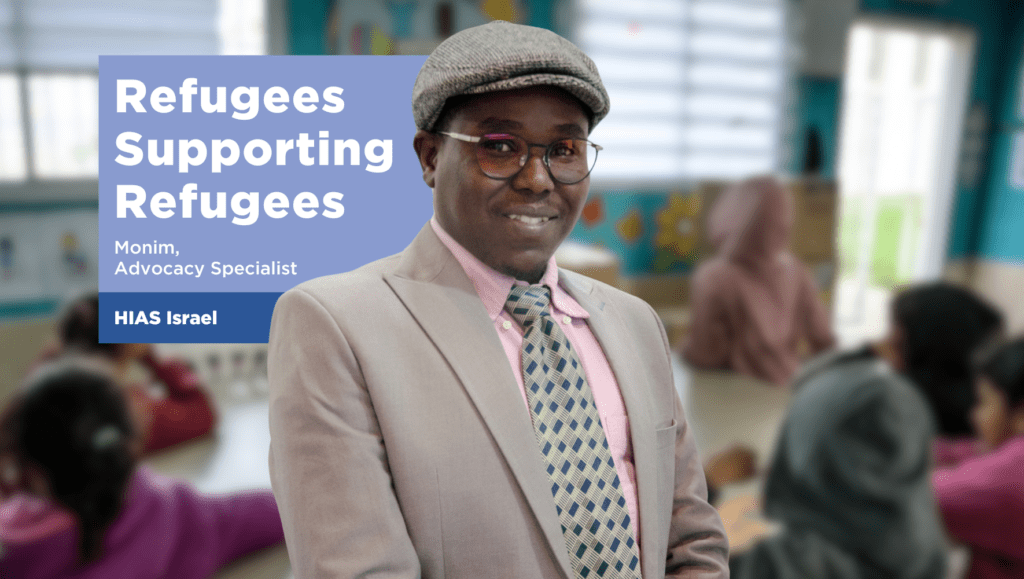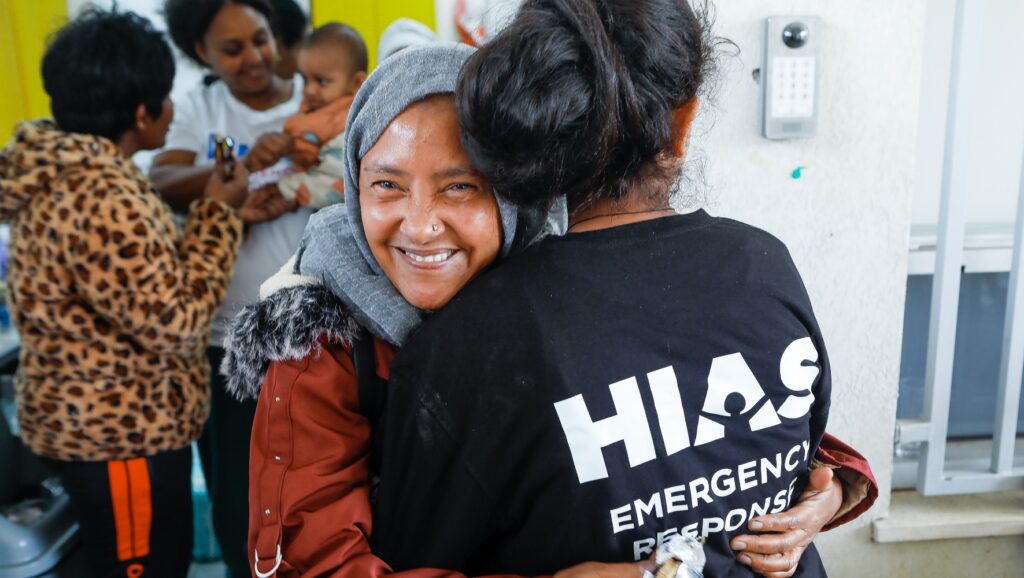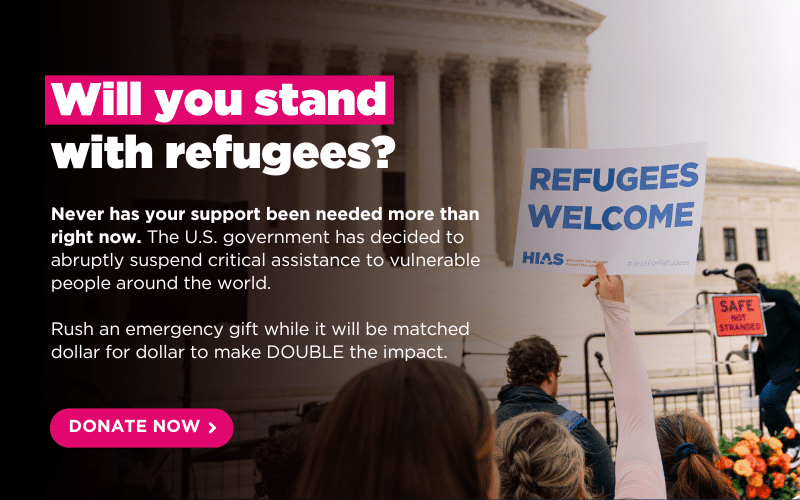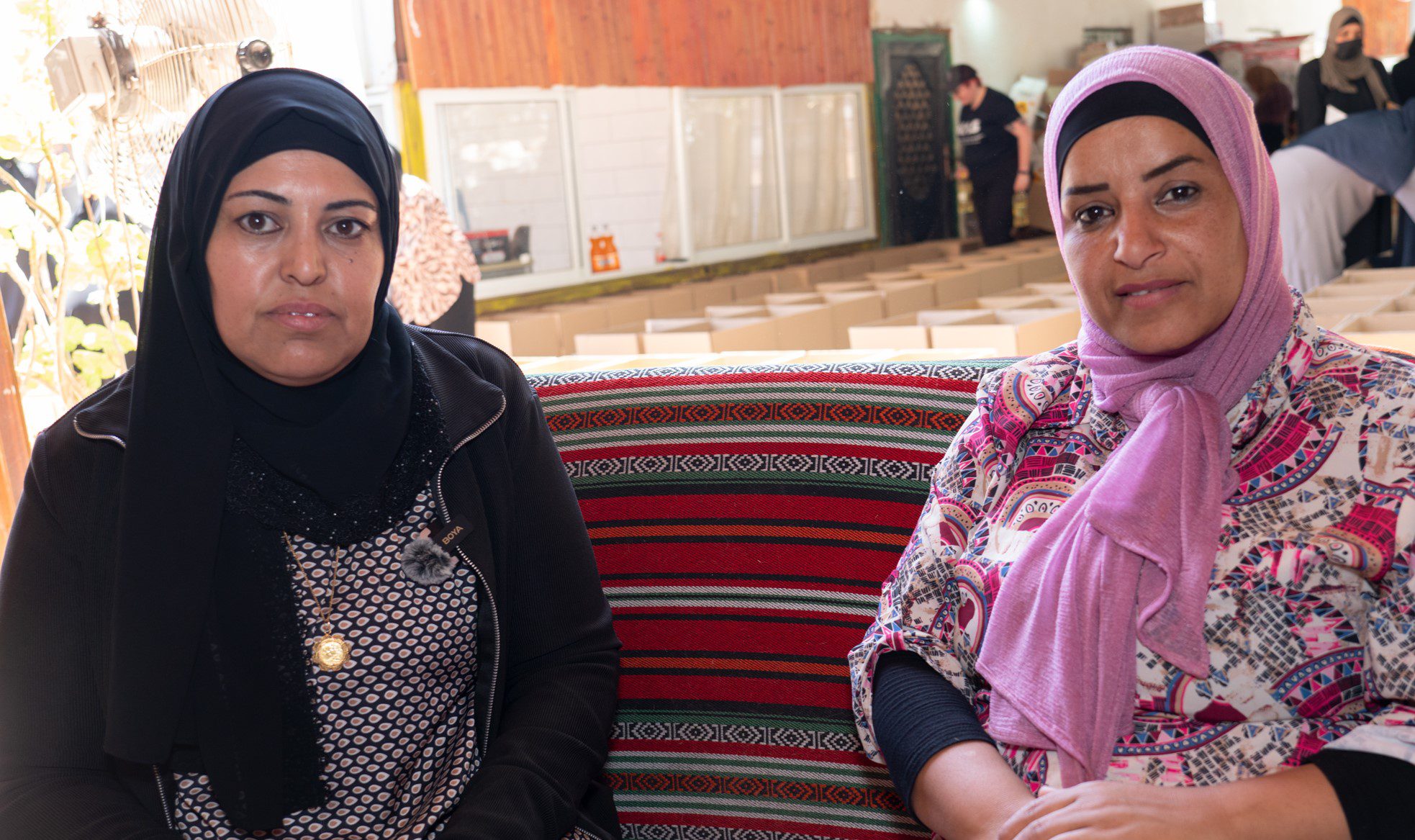
Reports of sexual violence during the October 7 attacks in Israel, brought to light by survivors, response teams, and released hostages, underscored the critical need for recognition and support for victims of gender-based violence (GBV). Since the attacks, HIAS Israel’s Emergency Response Team has made significant progress in addressing these needs.
The consequences of GBV are severe. They include physical injuries, psychological trauma, and economic impacts such as job loss and financial instability. The stress and instability of wartime conditions often lead to a rise in GBV, extending beyond the actions of direct perpetrators, and the situation in Israel reflects that reality. Economic hardships, displacement, and trauma from the war have fueled violence within families and communities. Many asylum-seeking women from African countries who have previously experienced sexual abuse now face re-traumatization.
Addressing these issues requires extensive mental health and psychosocial support, legal protection, and efforts to prevent further violence.
The stress and instability of wartime conditions often lead to a rise in GBV. “Refugees, particularly women fleeing war-torn countries, have too many times faced GBV on their journeys to Israel, only to be re-traumatized by the current conflict,” said Aely Haccoun, HIAS Israel Emergency Response director. “Our efforts have been centered on addressing these multiple layers of trauma and strengthening the support systems that are critical to empowering survivors, their families, and responding to the unique and devastating impacts of GBV in war.”
The response has included direct support for survivors of sexual violence, efforts to mitigate re-traumatization, and dealing with the rise in GBV. Through comprehensive support and collaboration with local and international partners, HIAS Israel’s Emergency Response helps victims of GBV and their families rebuild their lives, while also tackling the broader issue of GBV.
“Refugees, particularly women fleeing war-torn countries, have too many times faced GBV on their journeys to Israel, only to be re-traumatized by the current conflict.”Aely Haccoun, HIAS Israel Emergency Response director
Direct Action
HIAS Israel Emergency Response has mobilized a range of direct actions to address GBV. The team delivered essential supplies to families evacuated from communities near Gaza and in the North to help mitigate the GBV implications of prolonged displacement and financial strain. It provided food and hygiene products to a women’s shelter which helped nearly 90 women, many of whom are trapped in cycles of violence and prostitution and have faced an increase in violence since the onset of the war. Our legal team has also helped secure permits for Palestinian women fleeing violent households and facilitated their access to welfare services, medical aid, and domestic violence centers.
“My life is so difficult, and you came like angels,” said a single mother of three who benefited from a distribution. “You saved me and my children.”
Our Partnerships
A cornerstone of our response is partnerships. Here are details of three of them:
- Early in the conflict, HIAS collaborated with Achva Academic College on policy research, advocacy, and training practitioners in trauma-informed techniques for supporting GBV survivors. Achva and HIAS break down barriers and create safe spaces for survivors to begin their recovery.
- The Land Where Women Heal (AMEN) is dedicated to feminine healing and offers a unique residential program for survivors of sexual violence that includes emotional therapy, empowerment, and trauma-processing workshops. Through a partnership with AMEN, HIAS is addressing GBV by providing over 250 women with the tools and support they need to heal, cope with trauma, and rebuild their lives. “We were with the women at the painful moment, a month after the war, when they began to digest and understand,” an AMEN staffer noted.
- HIAS collaborated with October 7 Justice Without Borders, a group which does a lot of work on GBV, providing pro bono legal aid to victims and collecting and preserving evidence. And through a partnership with Itach Ma’aki— Women Lawyers for Social Justice and Al-Nashmiat, we are addressing GBV concerns within Bedouin communities in the Negev, particularly in unrecognized villages that have faced increased vulnerability since the onset of the war.
These partnerships not only offer immediate relief but also foster long-term healing and resilience. As Israel continues to face challenges, HIAS and its partners remain dedicated to breaking the silence around GBV and providing survivors with the tools they need to reclaim their lives. By supporting survivors of GBV through emergency aid, mental health services, and long-term empowerment programs and discussing GBV, HIAS and its partners are making a tangible difference in the lives of survivors.
